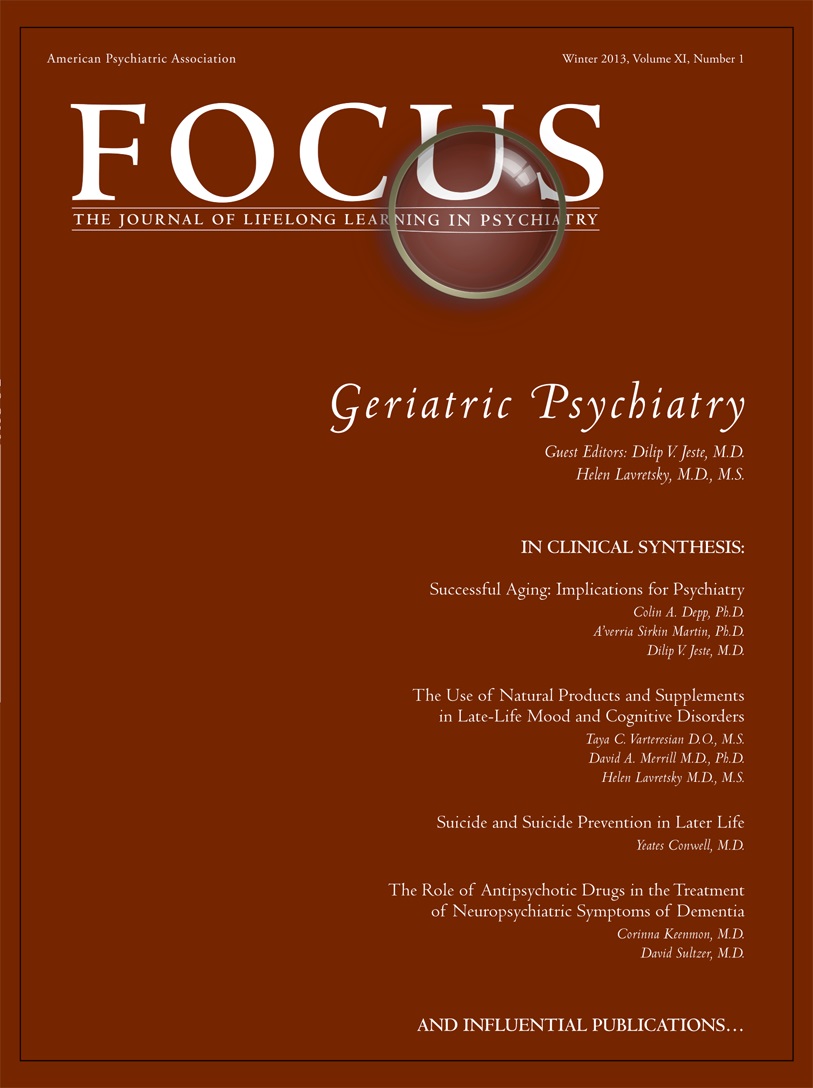Depression in Late-Life: A Focus on Prevention
Abstract
Depression is a leading cause of disease burden, disability, and distress for millions of older adults. Thus, prevention of late-life depression is a priority research area. This article addresses the science of late-life depression prevention with the following: 1) an introduction to the Institute of Medicine framework of universal, selective, and indicated prevention as it pertains to late-life depression, with particular attention to successes of indicated and selective prevention in primary care; 2) a discussion of how biomarkers can be integrated into prevention research, using interferon-alpha-induced depression as a model; 3) an outline for expansion of prevention to nonspecialist care delivery systems in low- and middle-income countries, thus extending the reach of current successful approaches; and 4) a description of a novel approach to simultaneous testing of universal, selective, and indicated prevention in late-life depression, with emphasis on study design features required to achieve practical, scalable tests of health impact.



